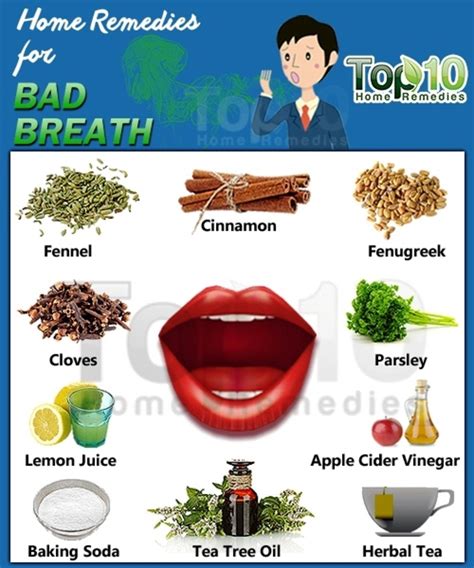12 Bad Smell Remedies For Fresh Breath

The perpetual quest for fresh breath is a universal concern that transcends cultures and geographical boundaries. Bad breath, or halitosis, can be a significant source of embarrassment and anxiety, affecting personal and professional relationships. While the importance of maintaining good oral hygiene is well understood, the causes of bad breath can be multifaceted, ranging from poor dental care to underlying health conditions. In this comprehensive guide, we will delve into the reasons behind bad breath and explore 12 effective remedies to help you achieve the confidence that comes with fresh, clean breath.
Understanding Bad Breath: Causes and Concerns
Before diving into the remedies, it’s essential to understand the causes of bad breath. Poor oral hygiene is a common culprit, as the bacteria in the mouth break down food particles, especially proteins and carbohydrates, releasing volatile sulfur compounds (VSCs) that give breath its characteristic bad smell. Other causes include gum disease, dry mouth (xerostomia), smoking, certain foods like garlic and onions, and medical conditions such as sinus infections, diabetes, and gastrointestinal issues.
12 Bad Smell Remedies for Fresh Breath
1. Practice Good Oral Hygiene
- Brushing and Flossing: Regular brushing (at least twice a day) and flossing can significantly reduce the bacteria in your mouth that cause bad breath.
- Tongue Scraping: Don’t forget to scrape your tongue, as bacteria can accumulate there as well.
2. Stay Hydrated
Drinking plenty of water helps keep your mouth moist, which in turn helps to wash away bacteria and food particles that can cause bad breath. Aim for at least eight glasses of water a day.
3. Sugar-Free Gum
Chewing sugar-free gum can stimulate saliva production, helping to rinse away bacteria and neutralize acid. look for gum with the ADA Seal, which means it has met the American Dental Association’s standards for safety and effectiveness.
4. Dietary Changes
Avoiding foods known to cause bad breath, such as garlic and onions, can be helpful. Incorporating foods that are rich in fiber, like apples and carrots, can help clean your teeth and stimulate saliva production.
5. Regular Dental Check-Ups
Visiting your dentist regularly for check-ups and cleanings can help identify and treat any oral health issues before they lead to bad breath.
6. Probiotics
Some research suggests that probiotics can help maintain a healthy balance of bacteria in the mouth, potentially reducing bad breath. Find probiotics in foods like yogurt or consider taking a supplement.
7. Tea Tree Oil
Tea tree oil has antimicrobial properties that can help combat the bacteria causing bad breath. Mix a few drops with water and use it as a mouthwash, or add it to your toothpaste.
8. Parsley
Parsley has been used for centuries as a natural breath freshener. Its chlorophyll content can help neutralize odor-causing compounds. Chew on fresh parsley leaves after meals.
9. Baking Soda
Baking soda can help neutralize acids in the mouth and reduce the growth of bacteria. Use it as a natural mouthwash by mixing 1 teaspoon of baking soda with water.
10. Lemon Juice
The acidity in lemon juice can help break down and kill bacteria. Mix equal parts lemon juice and water and swish it around your mouth before spitting it out.
11. Activated Charcoal
Activated charcoal can absorb VSCs and other compounds that cause bad breath. Use an activated charcoal toothpaste or mouthwash.
12. Address Underlying Conditions
If your bad breath persists despite good oral hygiene, it may be a sign of an underlying medical condition. Consult with your healthcare provider to rule out any health issues that could be contributing to your bad breath.
Conclusion
Achieving fresh breath is not just about personal hygiene but also about overall health and well-being. By understanding the causes of bad breath and incorporating these 12 remedies into your daily routine, you can significantly reduce the occurrence of bad breath and enjoy the confidence that comes with it. Remember, persistence and patience are key, as some remedies may take time to show their full effect.
What are the most common causes of bad breath?
+The most common causes of bad breath include poor oral hygiene, gum disease, dry mouth, smoking, certain foods, and underlying medical conditions.
How often should I visit my dentist to prevent bad breath?
+It’s recommended to visit your dentist at least twice a year for regular check-ups and cleanings to prevent bad breath and maintain good oral health.



